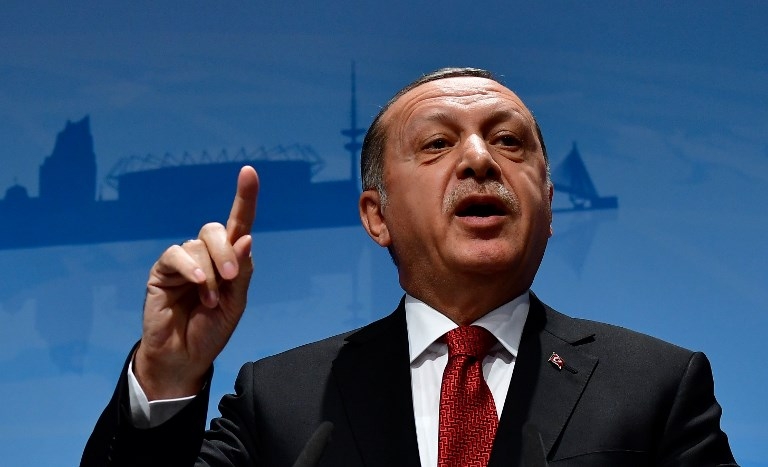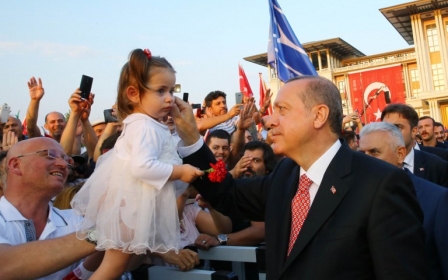Turkey defends plan to allow religious marriages amid controversy

The Turkish government on Sunday strongly defended a plan to let state-approved clerics conduct marriage ceremonies, rejecting fierce criticism that this would undermine the modern republic's secular foundations.
Turkey is mainly Muslim but officially is a secular state. Under its current laws, even religiously observant couples must be married by a state registrar from the local municipality and not an Islamic cleric.
But under a proposal submitted to parliament last week, muftis would also be given the power to carry out marriage ceremonies. Muftis are clerics employed by Turkey's state religious affairs agency Diyanet with the task of taking care of worship across the country.
President Recep Tayyip Erdogan has been repeatedly accused by critics of eroding the secular pillars of modern Turkey set up by Mustafa Kemal Ataturk, the founder of the Turkish Republic in 1923.
The main opposition, the Republican People's Party (CHP), has bitterly attacked the plan as the latest phase of alleged creeping Islamisation by the ruling Justice and Development Party (AKP).
CHP Manisa deputy Tur Yıldız Bicer earlier said the draft bill proposal was a violation of the constitution’s principle that rules “all citizens should be treated equally and the state does not discriminate in any way based on race or sect,” the Hurriyet daily reported.
“This will turn into a process that religious representatives of the majority sect in Turkey will conduct. Will the representatives of other sects and other religions be given this right? But I am not saying this in the sense that authority should be given to others as well. That would also be against secularism,” Bicer said.
But Deputy Prime Minister Bekir Bozdag, who is the government spokesman, said the change was about giving people more choice and not about undermining secularism.
"This change is not against the principle of secularism; on the contrary it is fully in line with secularism as it is in line with the rule of law," he wrote on Twitter.
"The change will ease and speed up official marriages and protect women in marital law," he added.
'Additional choices'
He insisted the change was about offering "additional choices" to citizens. No one would be forced into marriage by the muftis and could still use the existing arrangements, he insisted.
CHP lawmaker Candan Yuceer, the deputy head of the party's gender equality committee, said last week the plan "will inflict another blow to secularism" and risked encouraging underage marriages, according to the Hurriyet daily.
Pointing out there were ample officials in Turkey who could carry out secular marriages, she added: "Social life is step by step being formed in line with religious rules."
But Bozdag denied that the changes would encourage people to marry young, saying those who made such claims "either do not know the change or are deliberately distorting it".
Erdogan's governments have notably eased restrictions on wearing the Islamic headscarf in education, politics, the police and most recently the army.
The government rejects the criticsm, arguing it allows freedom of worship for all Turkish citizens and the lifting of headscarf bans merely brought Turkey into line with the rules in many Western, non-majority Muslim, nations.
This article is available in French on Middle East Eye French edition.
Middle East Eye propose une couverture et une analyse indépendantes et incomparables du Moyen-Orient, de l’Afrique du Nord et d’autres régions du monde. Pour en savoir plus sur la reprise de ce contenu et les frais qui s’appliquent, veuillez remplir ce formulaire [en anglais]. Pour en savoir plus sur MEE, cliquez ici [en anglais].




